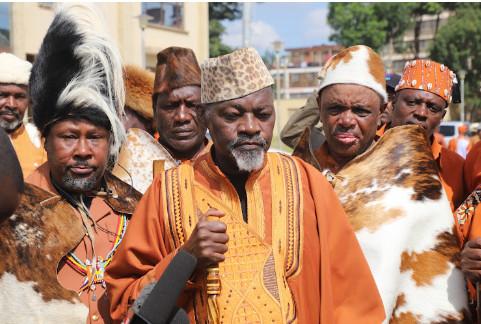Kikuyu elders have said this year’s circumcision of boys will be held as scheduled, despite the change of education system.
The rites of passage will take place at the end of the year, as has been the custom, elders from the Kiama kia Ma outfit led by Kungu Muigai said.
“It has been our culture that our boys are circumcised once they finish their KCPE exams or attain the age of 14 years. We will not disrupt this norm,” the national patron said.
Muigai differed with another faction that had earlier announced there would be no circumcision ceremony, since the school curriculum changed to the Competency Based curriculum (CBC) which keeps boys in Grade Eight still in primary schools.
“If we deny the boys the chance to be circumcised because they are still in primary school some will commit suicide and others will attempt to circumcise themselves which is dangerous and yet they have prepared themselves and do not want to be laughed at by their predecessors which may lead to stigmatisation,” he said.
The boys will be advised on how they should conduct themselves.
“The elders will educate and instil morals and discipline to the young men who will be circumcised such as not to engage in early sex, respecting younger pupils in school, drug usage and how to conduct themselves while in primary school.”
Muigai urged the elders responsible for conducting the rites to prepare for the upcoming occasion and called upon parents to bring their sons forward. His remarks were made during an elders’ prayer meeting held at Kirigiti International Stadium in Kiambu town on Thursday.
These comments follow a statement issued by the group’s national chairman in 2022, which adjusted the age of circumcision from 14 to 12 years. The change was prompted by the implementation of the Competency-Based Curriculum (CBC), under which boys transition to junior secondary school at the age of 12.
According to chairman Ndung’u Gaithuma, the decision was made after extensive consultations with stakeholders, including religious leaders, parents, and officials from the Ministry of Health.
Despite this decision, the Kiama kia Ma maintains a different stance from the church regarding the rites of passage, asserting that these ceremonies should be exclusively conducted by the elders, while the church should adhere to its religious doctrines.



